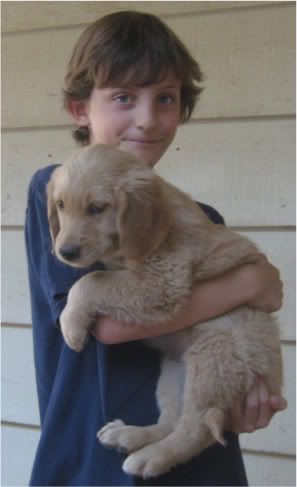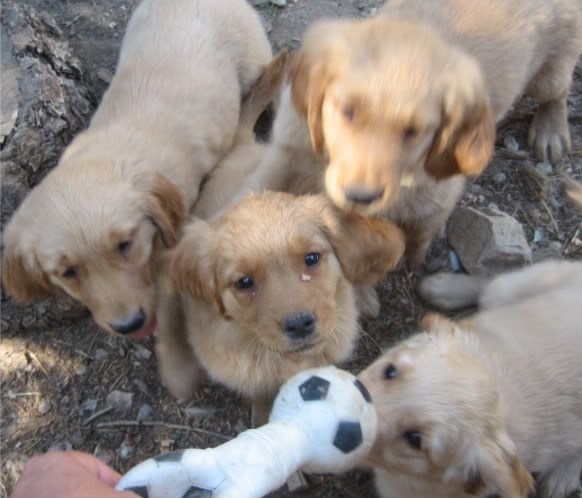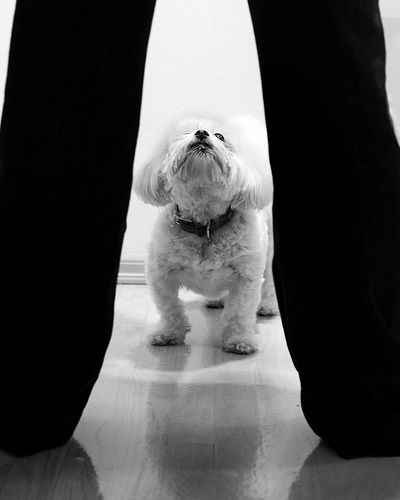
Above: Nine-year-old masters how to properly hold a puppy.
Over the weekend I got to go visit a litter of puppies that I first met seven weeks ago.
The entourage on the expedition included a grandma, a mom, a 9-year-old, a two-year-old and me.
Needless to say, I believed it was going to be entertaining.
At seven weeks of age, the puppies were very active and very mouthy and paired with kids under the age of nine means that usually it is a circus.
But I was happily surprised.
The nice thing about the entire group was that everyone was relaxed and so not much was an issue.
This situation was the exception rather than the rule since, in many cases, pet parents get into trouble by being lax about monitoring the kids and dogs.
I liked that both of the females allowed the kids to wander and let them work out some of the details during their interactions on their own but that an adult was at the peripheries to intervene if necessary.
One puppy immediately took a liking to the small child because he was just her size and she gazed calmly and amorously up at him.
She was so calm that it alarmed me because that is not normal puppy behavior!
All the pups liked the kids because they were closer to their size and active–which can be a problem in some households simply because the activity escalates and feeds back and forth between the children and the dog.
It often will continue to escalate until someone ends up in tears or the parent puts a stop to the cycle.

Above: Ark Lady redirects part of the puppy swarm to a squeaky, chew toy.
In this particular case, the kids grew up with a dog and so were not naive.
They actually had a skill set to help them deal with the six active delinquents.
I liked the fact they knew to get up on a chair to escape the pups.
This was a great change from the children I often see squeal or run and then trigger escalated play response from the puppies.
Kids under the age of ten simply do not have the skills or restraint to deal with pets on their own.
At one point the two-year-old was suddenly surrounded by puppies but he did not panic and put his back against the fence to support himself.
This was a good skill (be a tree) and worked until mom could scoop him up in her arms.
I find most kids that young usually cannot restrain themselves to follow instructions given to them previously and most don’t have the opportunity to practice.
Although very tall for his age, the older child was within the norms of the age group–very active and not able to contain his urges to move.
He actively ran and jumped so that all the puppies followed and once he got them amped up–he escaped by using the chair.
What was interesting about the afternoon session was to watch how the kids behaved around another species so that everyone remained safe–even in chaos.
At first, the older child cuddled one puppy incorrectly but then, with some guidance, realized that the puppy should be handled so that it was supported and so it could breath easily instead of upside down and cuddled to the chest.
It was a great socialization session for the puppies and for the kids.
Plus, everyone got sufficiently dirty and tired.
More people should make the effort to make sure their puppies and kids get exposed to each other in safe conditions–it benefits everyone in the long term.
And, as predicted, all youngsters of both species hit the hay early for a good night of sleep!


